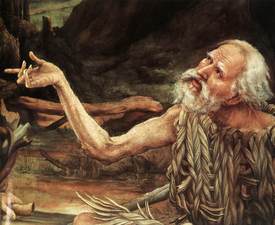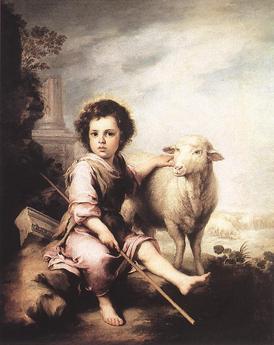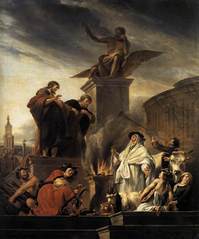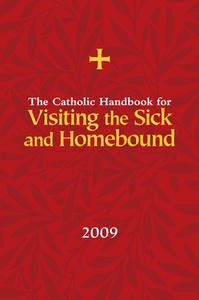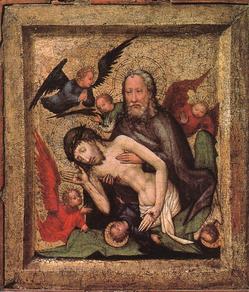 … we contemplate the Most Holy Trinity as Jesus
… we contemplate the Most Holy Trinity as Jesus
introduced us to it. He revealed to us that God is love “not in the
oneness of a single Person, but in the Trinity of one substance” (Preface).
He is the Creator and merciful Father; he is the Only-Begotten Son, eternal
Wisdom incarnate, who died and rose for us; he is the Holy Spirit who moves all
things, cosmos and history, toward their final, full recapitulation. Three
Persons who are one God because the Father is love, the Son is love, the Spirit
is love. God is wholly and only love, the purest, infinite and eternal love. He
does not live in splendid solitude but rather is an inexhaustible source of
life that is ceaselessly given and communicated. To a certain extent we can
perceive this by observing both the macro-universe: our earth, the planets, the
stars, the galaxies; and the micro-universe: cells, atoms, elementary
particles. The “name” of the Blessed Trinity is, in a certain sense,
imprinted upon all things because all that exists, down to the last particle,
is in relation; in this way we catch a glimpse of God as relationship and
ultimately, Creator Love. All things derive from love, aspire to love and move
impelled by love, though naturally with varying degrees of awareness and
freedom. “O Lord, our Lord, how majestic is your name in all the
earth!” (Ps 8: 1) the Psalmist exclaims. In speaking of the
“name”, the Bible refers to God himself, his truest identity. It is
an identity that shines upon the whole of Creation, in which all beings for the
very fact that they exist and because of the “fabric” of which they
are made point to a transcendent Principle, to eternal and infinite Life which
is given, in a word, to Love. “In him we live and move and have our
being”, St Paul said at the Areopagus of Athens (Acts 17: 28). The
strongest proof that we are made in the image of the Trinity is this: love
alone makes us happy because we live in a relationship, and we live to love and
to be loved. Borrowing an analogy from biology, we could say that imprinted
upon his “genome”, the human being bears a profound mark of the
Trinity, of God as Love.
Connecticut Catholics might be…
… forced to keep quiet by the State if the current law on lobbying stands. States officials in the Ethics Office are applying an unjust law to the Catholic Diocese of Bridgeport; if the Catholics today, other Christian groups, Jews and Muslims tomorrow. As Bishop Lori correctly states, the Diocese of Bridgeport is not a lobbyist but a church. And as a church is the bishops and priests are called upon to teach, govern and to sanctify. The SB 1098 and other state bills that seek to change the mission of the Church violates constitutional freedoms. This is a matter, therefore, of all people’s First Amendment rights, not just about the rights of Catholics to exercise their freedom to speak and assemble publicly. Efforts now must begin to work for the current rules for lobbyists to be changed and the ruling of the Ethics Office overturned. Civil and intelligent discourse please! The Fox News report is interesting because it reports the claim that the officials in the Ethics Office are objective. Hmmm, I don’t see the evidence of that in this case. So, I can’t say that I believe for one minute that the CT State Office of Ethics is content neutral, particularly when it comes to the Roman Catholic Church in Connecticut, and more so when it comes to Bishop William Lori.
Where are all the priests?
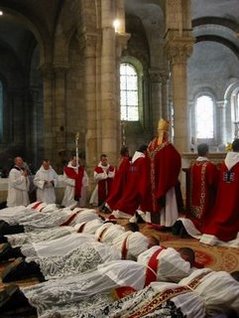 A recent article on who has competence to remove priests from ministry permanently is interesting and yet depressing. But it is a matter of reality that some men ordained to the priesthood of Jesus Christ do not remain priests. To think since the Second Vatican Council, as some researchers and commentators have claimed, 100,000 priests have left their vocation as priests. If true, this fact is overwhelming to grasp.
A recent article on who has competence to remove priests from ministry permanently is interesting and yet depressing. But it is a matter of reality that some men ordained to the priesthood of Jesus Christ do not remain priests. To think since the Second Vatican Council, as some researchers and commentators have claimed, 100,000 priests have left their vocation as priests. If true, this fact is overwhelming to grasp.
Prayer to Saint Paul
As the Year of Saint Paul comes to an end, let us pray this prayer for Saint Paul’s intercession before the Divine Majesty.
“Being” determines “acting”: allowing the Good Shepherd to lead us to the Father
That today is Thursday, the day of the Eucharist and the priesthood, I thought I would republish most of the recent letter of Archbishop Piacenza (Secretary
for the Congregation for the Clergy) who writes to the world’s priests in view of the Year of the Priest. Reading the letter you see that he is right when he says that the holiness of
priests is not for themselves, it is a sacrificial holiness, an offering with
Christ, for the benefit of the entire Church. He writes to the priests:
Each day we are called
to conversion, but we are called to it in a very particular way during this
year, in union with all those who have received the gift of priestly
ordination. Conversion to what? It is conversion to be ever more authentically
that which we already are, conversion to our ecclesial identity of which our
ministry is a necessary consequence, so that a renewed and joyous awareness of
our “being” will determine our “acting”, or rather will
create the space allowing Christ the Good Shepherd to live in us and to act
through us.
Our spirituality must be nothing other than the spirituality
of Christ himself, the one and only Supreme High Priest of the New Testament.
In this year, which the Holy Father has providentially
announced, we will seek together to concentrate on the identity of Christ the
Son of God, in communion with the Father and the Holy Spirit, who became man in
the virginal womb of Mary, and on his mission to reveal the Father and His
wondrous plan of salvation. This mission of Christ carries with it the building
up of the Church: behold the Good Shepherd (Cf. Jn. 19:1-21) who gives his life
for the Church (Cf. Eph. 5: 25).
Yes, conversion every day of our lives so that Christ’s
manner of life may be the manner of life made ever more manifest in each one of
us.
We must exist for others, we must undertake to live with the
People in a union of holy and divine love (which clearly presupposes the
richness of holy celibacy), which obliges us to live in authentic solidarity
with those who suffer and who live in a great many types of poverty.
We must be labourers for the building up of the one Church
of Christ, for which we must live purposefully and faithfully the communion of
love with the Pope, with the Bishops, with our brother priests and with the
Faithful. We must live this communion with the unbroken pilgrimage of the
Church within the very sinews of the Mystical Body.
We should be able to run spiritually in this Year with a
“wide open heart” so as to inwardly conform to our vocation the
better to say, in truth “it is no longer I who live but Christ who lives
in me” (Gal. 2:20).
The holiness of priests redounds to the benefit of the
entire ecclesial Body. Thus it would be most fitting for all of us, be that the
ordained Faithful, seminarians, the male and female religious, and the lay
Faithful, to find ourselves all together at the Vatican Basilica for the
Vespers presided over by the Holy Father, which will be celebrated after
welcoming the reliquary of the heart of that most outstanding priestly model
who is St. John Mary Vianney.
Those who are unable to be in City of Rome are encouraged to
join themselves spiritually to the occasion.
+Mauro Piacenza
Titular Archbishop of Vittoriana Segretario
Saint Barnabas
Visiting the Sick and Homebound: a Catholic handbook
The Catholic Handbook for Visiting the Sick and Homebound
Chicago: Liturgy Training Publications, 2009 [an annual
publication]; 245 pages. $5.00.
Since 2006 Liturgy Training Publications has been publishing
this annual publication to assist the lay ministers called by the pastor to
help him in his ministry of visiting the sick and homebound. At the time I was
an editor at LTP and The Catholic Handbook for Visiting the Sick and Homebound
was one of my responsibilities but since then there’s been some slight improvements to the original manuscript. This resource is based on experience; I had knowledge that many
people neither had the proper formation nor the familiarity with the ritual
books enough to know which were the appropriate rites for the laity to exercise
their ministry. Not infrequently did I hear the horror stories of liturgical
abuse in the hospitals, prisons, healthcare centers and in homes. Gross
ignorance of what the Church expected and a lack of pastoral skill caused more
harm to the faith. Three years after the initiating this publication, but no
longer in the employ of LTP but now in pastoral life, I continue to hear about and
witness the spiritual malpractice of lay ministers when it comes to these
matters. I believe God’s people need to hear the Gospel proclaimed and the
rites respected; all the more for those who are ill or weak due to age. This
publication is not a panacea but it does ably assist in allowing Christ to be
present to those in need.
This Handbook has all the tools necessary to make a proper pastoral visit to those who request the ministrations of the Church. The book has an excellent
introduction, the nine rites available to the laity for such pastoral visits, the
Gospel and holy day readings, a brief explanation of the readings and the list
of patron saints. The Handbook shows the user how to make room for prayer in
special circumstances.
Benedictine Sister Genevieve Glen’s introduction is
essential reading. It’s not an overstatement to say that if you skip her
introduction then you will miss some very essential theological and pastoral
insights for effective ministry of care. For example, the introduction covers
elements “using the book,” being pastorally present, what needs to be done
prior to a visit, carrying the Blessed Sacrament, prayer, use of music, and the
like. Moreover, Sister Genevieve leads the user through what the rites mean,
what needs special attention and the basics for good interpersonal skills. Remember, the
Church’s ministry is always personal. The ministry is directed toward the
patient, the family and at times the healthcare professionals. As Sister
Genevieve reminds the user: you bring a word of God to those in need, those
visited also witness Christ to us –ministry is a two-way street.
The rites are taken from the Book of Blessings and the
Pastoral Care of the Sick: Rites of Anointing and Viaticum. The Scripture
readings are taken from the Lectionary. The Handbook carries the imprimatur of
the Vicar General of the Archdiocese of Chicago.
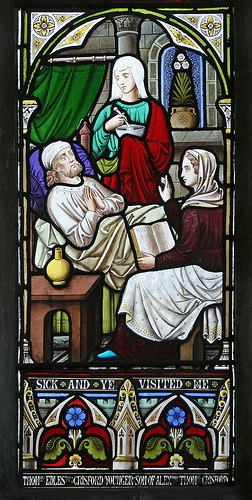
Recent additions to this volume are the “Order of Blessing
of a Person Suffering from Addiction or from Substance Abuse,” “Order for the
Blessing of a Victim of Crime or Oppression and the “Order of Blessing of
Parents after a Miscarriage.” These new orders are very welcomed today since we
often neglect the spiritual needs of those suffering from addiction, substance
abuse, and the after-effects of crime, oppression and miscarriage. How often do
we pray with and for those living with these experiences in their hearts? As
ministers of Jesus Christ, priests and laity always need to keep in mind those
who suffer.
Often overlooked is idea that it is Christ under the power
of the Holy Spirit who works through the rites, not the personality of the
minister. Let’s be clear: Christ uses us to do His work; Christ does not do our
work. Our responsibility is to act as Christ would act because it is He who
heals and saves through ministry. The Church has beautifully responded to this
human need with the appropriate rites. In doing so, the Church closes off the
possibility for those who would want to do their own thing and doing it
haphazardly.
Personal preparation by making the rites and Gospel message through
prayer and study will help the user of this book more effective. The
encouragement is that you enter prayerfully and deliberately into the heart of
the Church through the Church’s rites. Every lay person bringing Holy Communion
to those not present at the Sunday celebration of Mass ought to get The
Catholic Handbook for Visiting the Sick and Homebound annually. This book is also available in Spanish.
Spiritual Exercises 2009 available
You can download the 2009 Communion & Liberation Fraternity Spiritual Exercises; the booklet is available in four languages. The print edition will be available with the June issue of Traces magazine. Log on to the CL site here.
Wisdom and knowledge unfold in the Sacred Heart of Jesus
The great feast of the Sacred Heart of Jesus and with that the opening of the Year of the Priest (June 19), ought to be a time for us to focus on our study and prayer on the mercy and medicine offered to us by the Lord. Why is this feast an apt time for us to focus our energies on the theology of the Sacred Heart? Because as the psalmist says, seek His face; it is a true school of the Lord’s love. I believe, as you might, that the feast of the Sacred Heart is a propitious time to come to understand the wisdom and knowledge of the Divine Heart.
World Youth Alliance: video documentation on the work for human dignity
Watch the documentary video on the World Youth Alliance which works to promote the fact that every person has human dignity, that it’s intrinsic and it lasts forever.
